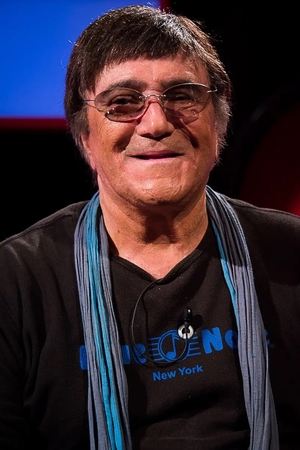
José Cid
José Cid, stage name of José Albano Cid de Ferreira Tavares (Chamusca, February 4, 1942), is a Portuguese singer, songwriter, instrumentalist, and music producer. The son of Francisco Albano Coutinho Ferreira Tavares and Fernanda Salter Cid Freire Gameiro, he began his studies in religious schools and showed an early interest in music. As a teenager, he formed the band Os Babies and later, in Coimbra, joined several groups until founding Quarteto 1111 (1967), a pioneering band in Portuguese progressive rock, known for the hit A Lenda de El-Rei D. Sebastião. At the same time, he developed a solo career, releasing his first album in 1971. In the 1970s, he stood out with hits such as Vinte Anos and the progressive rock album 10,000 Anos Depois Entre Vénus e Marte (1978), now regarded as an international classic of the genre. He represented Portugal in international festivals and won the 1980 Festival RTP da Canção with Um grande, grande amor, placing 7th at the Eurovision Song Contest. Over the following decades, he explored diverse styles — from pop to fado, including jazz and protest music — and released landmark albums such as 10,000 Anos Depois Entre Vénus e Marte (1978), José Cid Canta Coisas Suas (1979), Xi-Coração (1986), De Par em Par (1991), Vendedor de Sonhos (1994), and Cais Sodré (1997). He was also active in social causes, such as supporting the independence of East Timor. In the 2000s and 2010s, he gained renewed popularity among younger generations, with reissues, sold-out concerts, and compilations like Antologia – Nasci P’rá Música (2003) and Pop, Rock e Vice-Versa (2007). With a career spanning more than 60 years, José Cid has established himself as one of the most versatile and influential artists in Portuguese music, successfully crossing genres and generations while maintaining a strong bond with his audience.
DOB: 1942-02-04
Gender: Male
Birth Place: Chamusca, Portugal






